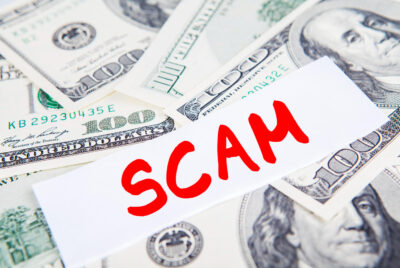Recovering Money from Scams
It’s a sickening feeling – that moment when you realize you’ve been scammed. Your stomach drops, your heart races, and panic starts to set in. Whether you’ve lost $100 or $10,000, being victimized by a scammer can leave you feeling vulnerable, angry, and ashamed. But here’s the thing: you’re not alone, and more importantly, you’re not helpless. Many scam victims are successful in recovering money from scams by taking quick, decisive action.
In this comprehensive guide, we’ll walk you through exactly what to do if you’ve been scammed, including proven strategies for recovering your money and protecting yourself from future fraud. Time is critical when it comes to scam recovery, so let’s dive right in.
The Moment of Truth: Recognizing You’ve Been Scammed
Sometimes the realization hits you like a ton of bricks – that “too good to be true” investment was actually a scam, or that urgent request from your “boss” was really a fraudster in disguise. Other times, the dawning awareness comes more slowly, as promised returns fail to materialize or communication suddenly goes dark.
Common red flags that often confirm you’re dealing with a scam include:
- Pressure to act immediately on “time-sensitive” opportunities
- Requests for payment through unusual or untraceable methods
- Promises of guaranteed high returns with “no risk”
- Unsolicited contact from unknown parties asking for money or personal information
- Poor grammar and spelling in official-looking communications
- Being asked to keep the transaction secret or avoid telling your bank
Don’t Panic – Take These Immediate Actions
The moments right after discovering you’ve been scammed are crucial. While your instinct might be to curl up and pretend it didn’t happen, taking swift action can dramatically improve your chances of recovering money from scams. Here’s what you need to do right away:
1. Stop All Contact and Further Payments
Cut off all communication with the scammer immediately. Don’t be fooled by promises to “make things right” or threats about what will happen if you don’t send more money. These are typical manipulation tactics used to extract even more funds from victims.
If you’ve set up any automatic payments or given authorization for future transactions, cancel them immediately. Contact your bank or financial institution to revoke any standing authorizations.
2. Document Everything
Think like a detective – gather every piece of evidence related to the scam:
- Save all emails, text messages, and social media communications
- Screenshot or photograph any relevant websites before they disappear
- Record dates, times, and details of phone conversations
- Keep copies of transaction receipts, wire transfer records, and bank statements
- Note down names, phone numbers, and any other contact information used by the scammer
This documentation will be invaluable when reporting the fraud and pursuing refunds.
Your Recovery Options: Breaking It Down by Payment Method
Your chances of recovering money from scams largely depend on how you paid. Let’s explore your options based on different payment methods:
Credit and Debit Card Payments
If you used a credit or debit card, you’re in luck – these often offer the best protection against fraud. Here’s what to do:
- Contact your card issuer immediately to report the fraud
- Request a chargeback for unauthorized or fraudulent transactions
- Follow your bank’s dispute process carefully, providing all requested documentation
- If initially denied, don’t give up – you can appeal the decision
Many credit card companies offer zero liability for fraudulent transactions if reported promptly. Even debit cards typically provide protection, though the process might take longer.
Bank Transfers and Wire Payments
While recovering wire transfers can be trickier, don’t assume all hope is lost. Take these steps:
- Contact your bank’s fraud department immediately – speed is crucial
- Request a recall of the wire transfer if it’s very recent
- File a detailed fraud report with your bank
- Ask about your bank’s fraud protection policies and reimbursement options
Some banks have started offering protection for certain types of transfer scams, particularly if you can prove you were misled about the recipient’s identity.
Digital Payment Platforms (PayPal, Venmo, etc.)
Modern payment platforms often have built-in protection mechanisms:
- Open a dispute through the platform’s resolution center
- Provide detailed evidence of the fraud
- Follow up regularly on your case
- Escalate to platform support if needed
PayPal, in particular, offers buyer protection for many types of transactions, though there are important exclusions to be aware of.
Cryptocurrency Transactions
While cryptocurrency transfers are generally irreversible, you’re not completely without options:
- Report the scam to the cryptocurrency exchange used
- Use blockchain explorers to track where your funds were sent
- Connect with crypto scam recovery communities
- Consider working with specialized crypto investigation firms
Some exchanges can freeze funds if they’re still within their system, and law enforcement has become increasingly successful at tracking crypto scams.
Reporting the Scam: Making Your Voice Heard
Reporting fraud serves two crucial purposes: it can help with your recovery efforts and helps prevent others from falling victim to the same scam. Here’s where to report:
Law Enforcement
- Your local police department
- FBI’s Internet Crime Complaint Center (IC3) for online scams
- National fraud reporting centers in your country
Consumer Protection Agencies
- Federal Trade Commission (FTC) in the United States
- Action Fraud in the United Kingdom
- Canadian Anti-Fraud Centre in Canada
- Similar agencies in other countries
Financial Institutions
- Your bank’s fraud department
- Credit card companies
- Investment regulatory bodies for investment scams
Protecting Yourself Going Forward
While recovering from a scam, it’s crucial to prevent future attempts. Here’s how to strengthen your defenses:
Enhanced Security Measures
- Enable two-factor authentication on all financial accounts
- Use unique, complex passwords for each online service
- Consider using a password manager
- Regular monitor your credit reports and bank statements
Developing a Skeptical Mindset
- Question unsolicited offers and opportunities
- Verify identities through official channels
- Take time to research before sending money
- Trust your instincts if something feels off
Staying Informed
- Follow consumer protection agencies on social media
- Subscribe to fraud alert services
- Join scam awareness groups
- Share your experience to help others
The Road to Recovery
Recovering from a scam isn’t just about getting your money back – it’s also about recovering your confidence and peace of mind. Remember:
- Being scammed doesn’t make you stupid or gullible
- Scammers are professional criminals who use sophisticated tactics
- Many people successfully recover from scams and go on to help others
- Each scam report helps authorities build stronger cases against fraudsters
Frequently Asked Questions
Q: How long do I have to report a scam?
A: While it’s best to report immediately, many financial institutions allow fraud reports up to 60 days after the transaction. However, the sooner you report, the better your chances of recovery.
Q: What if the scammer threatens me?
A: Report any threats to law enforcement immediately. Never give in to blackmail attempts – they’re usually empty threats designed to extract more money.
Q: Can I recover money sent through gift cards?
A: While gift card payments are among the hardest to recover, report it anyway. Some gift card companies have begun implementing anti-fraud measures that might help.
Q: Should I hire a recovery service?
A: Be very careful with recovery services – many are scams themselves. Stick with legitimate law enforcement and financial institutions unless you’ve thoroughly vetted a private service.
Conclusion
While recovering money from scams can be challenging, success stories happen every day. The key is acting quickly, documenting everything, and being persistent in your recovery efforts. Remember, you’re not just fighting for your money – you’re standing up against fraud and helping protect others from similar scams.
Don’t let shame or embarrassment prevent you from taking action. Scammers count on victims staying silent. By speaking up and fighting back, you’re not just helping yourself – you’re joining a worldwide community of fraud fighters working to make scams less profitable and our financial systems safer for everyone.




